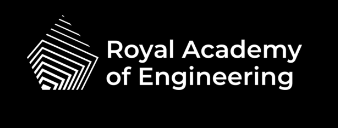Grants of up to £100k each awarded to three new university projects to increase diversity and inclusion in engineering
The Royal Academy of Engineering’s Diversity Impact Programme has awarded grants of up to £100k each to three UK universities to support projects that address the unequal outcomes experienced by their students from diverse and underrepresented groups studying engineering.
This is the third round of grants to be awarded since the Diversity Impact Programme launched in 2021. Since then, a total of £1,998,500 has been awarded to 20 universities for 22 projects. The programme’s aim is to inspire change in university engineering departments so that all students succeed, enabling the unique perspectives and experiences of engineers from diverse backgrounds to enhance the profession. An important aspect of the programme is that the universities themselves define what they need to meet their diversity and inclusion challenges.
Together, the three latest university projects focus on improving the outcomes of students who are underrepresented in engineering and who experience social inequality, as well as on diversifying engineering departments. The projects are targeted at a range of students and learners, including women and girls, young carers and other disadvantaged learners (including young people impacted by the pandemic), and those facing inequality due to their ethnicity, socio-economic status or disability.
Joanna Whiteman, Head of Diversity and Inclusion at the Royal Academy of Engineering, said: “I find it impossible to overstate how vital it is that we find new and better ways to tackle the long-standing inequality of experience and outcomes for engineering students and graduates from underrepresented groups. So I am encouraged to see how the Diversity Impact Programme is unlocking such ingenuity on the part of staff and students as they collaborate to tackle this problem together. Emerging findings from the projects we have supported to date are already providing important insights into how universities can cultivate more inclusive cultures at a critical stage for aspiring engineers.”
The latest projects being funded are as follows (value of award in brackets).
- Edinburgh Napier University (£99,700)
The Library of InspirationThis project aims to empower 12- and 13-year-olds from groups that are underrepresented in engineering to become future leaders. This will be achieved through Libraries of Inspiration, located in local high schools. Each Library will house 10 subject-specific writers’ kits, each containing the technology, tools and inspiration to bring STEM related topics to life. These kits will be co-created by students, teachers, library staff, and academics.
The kits, designed specifically for girls, young carers, and pupils from underrepresented backgrounds, incorporate fashion, film, books, adventure, sustainability, and other topics to ignite excitement and motivation.
They will explore cutting-edge technologies, such as virtual and augmented reality, sound, robotics, information systems, and AI, to indirectly encourage engagement with engineering. The primary focus is on storytelling, using peer groups and role models to foster confidence, communication, and leadership skills.
The concept of a library provides a familiar and inclusive space for individuals to find agency and inspiration. It allows them to explore new technologies, break down barriers, and discover their own path.
- Loughborough University (£93,700)
Inclusive Engineering Hub for transformative, equitable and inclusive teaching
The Inclusive Engineering Hub, first developed through a Diversity Impact Programme grant in 2022, is an inclusive environment for students to celebrate diversity, receive professional personalised careers and coaching support, engage in engineering activities, ease cost-of-living pressures, socialise and focus on self-care. Based on student feedback, the new project aims to upgrade the existing Hub and develop new extended reality facilities for engineering education.Incorporating extended reality teaching opportunities in engineering education could enable significant curriculum and skills development. This project will improve student access to a wider range of these transformative engineering experiences in welcoming and inclusive environments outside formal teaching.
- University of Plymouth (£98,500)
Partnering for choice and change: education for social inclusionThis project will build on inclusive practices and provision in schools by addressing educational inequalities that exist in society and education and impact upon pupils’ attainment, attendance and progression. It will promote social and civic responsibilities among underrepresented undergraduate engineering students, and secure successful graduate outcomes.
Two week-long summer schools will be delivered in the university’s newly built, state-of-the-art engineering laboratories to improve outcomes for a select group of year 10 pupils in secondary education and post-16 students in Further Education. The programme will offer immersive learning experiences and mentoring for pupils’ communication skills and attainment. The activities will be co-created and co-run by undergraduate engineering minority students.
More detail about these three projects and others that have been funded under the Diversity Impact Programme can be found on the Academy’s website.
Projects will run for 12 to 18 months. All grant recipients have demonstrated a commitment to transformative change and join a community of practice to facilitate learning all cohorts of grantees and the wider engineering higher education sector.
This programme is funded through the Academy’s allocation of funding from the Department for Science, Innovation and Technology.
Source: https://raeng.org.uk/news/grants-of-up-to-100k-each-awarded-to-three-new-university-projects-to-increase-diversity-and-inclusion-in-engineering
Click here to see what Acres have been doing for Schools and STEM!
https://acres.engineering/category/blog/csr/stem/
Source: RoyalAcademyofEngineering.org.uk

